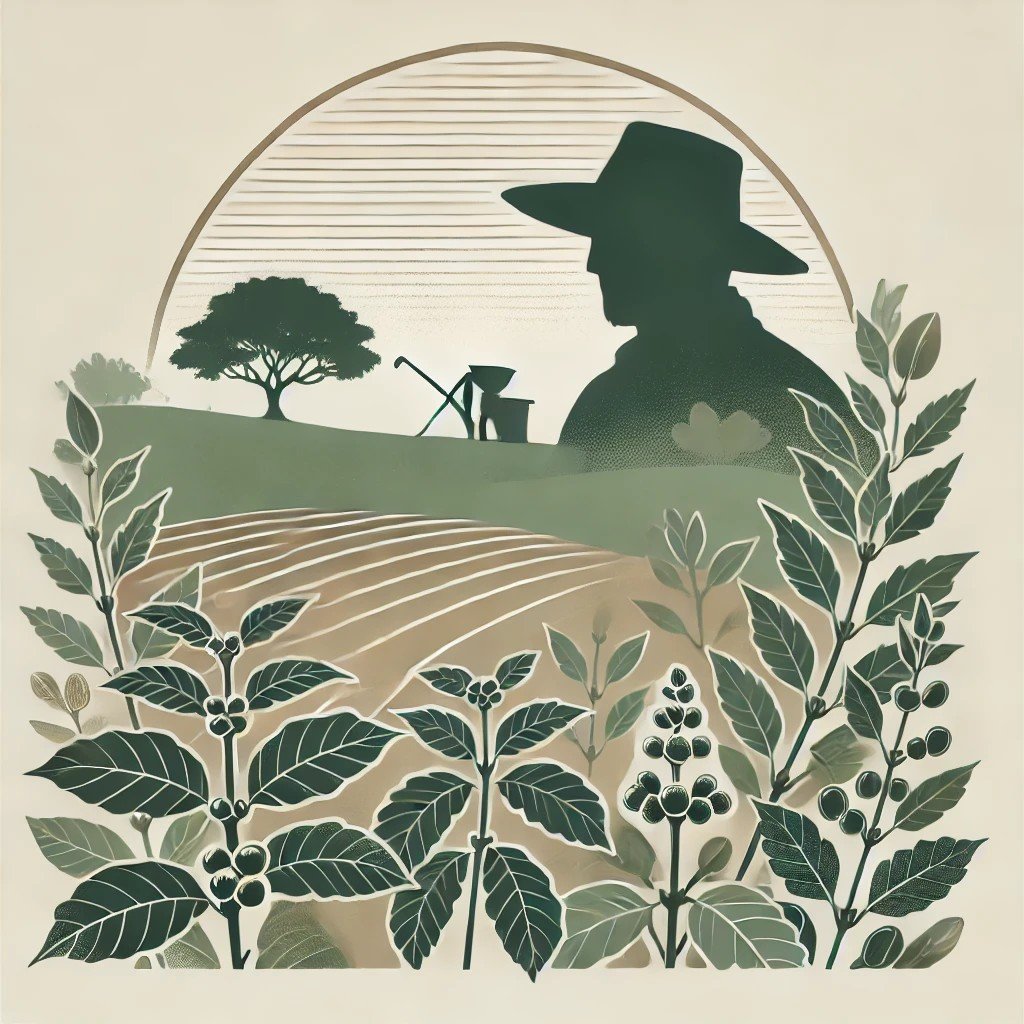
Farmwashing in Specialty Coffee: A Deceptive Brew or a Call for Accountability?
In the age of conscious consumption, where buyers increasingly value transparency and ethics, the specialty coffee industry has witnessed a surge in the marketing of “farm-to-cup” narratives. These stories evoke the charm of rural landscapes, hardworking farmers, and the journey of coffee beans from exotic farms to your cup. However, behind this romanticized imagery lies a growing concern: farmwashing.
What is Farmwashing?
Farmwashing refers to marketing strategies that falsely suggest a close, ethical connection between coffee brands and the farmers who produce their beans. This term critiques the exploitation of farmer narratives, imagery, and identity to attract socially conscious consumers—often without ensuring fair compensation or meaningful support for the farmers themselves.
Much like its counterpart in the supermarket industry, where claims of “farm-fresh” products are often debunked, farmwashing in coffee cheapens the authenticity of the specialty coffee movement.
How Farmwashing Works in Coffee
Farmwashing tactics in coffee often include:
- Misrepresentation of Direct Trade: Some brands claim to have direct relationships with farmers but purchase most of their coffee through commodity markets with no real connection to producers.
- Romanticized Marketing: Photos of smiling farmers and lush plantations are displayed prominently, even if the farmers featured have little or no involvement in the coffee being sold.
- Selective Storytelling: Highlighting small microlots or partnerships while downplaying reliance on mass-produced coffee.
The issue resonates across the coffee supply chain, raising questions about fairness, transparency, and accountability.
The Coffee Paradox: Stories vs. Realities
The specialty coffee movement has long championed traceability, sustainability, and quality. With the rise of microlots and direct trade, companies like Intelligentsia and Counter Culture Coffee set standards for ethical sourcing. Yet, as the demand for “origin stories” has grown, so too have opportunities for manipulation.
Dr. Janina Grabs, Assistant Professor of Business and Society, explains:
“Farmwashing not only distorts consumer perceptions but also devalues the work of farmers who genuinely participate in direct trade relationships.”
Coffee companies capitalize on symbolic associations with famous origins, such as “Kilimanjaro” or “Colombian Gold.” However, many farmers do not share in the financial benefits of this branding. Economist Stefano Ponte highlights this in his study of symbolic value in global trade:
“While brands reap the rewards of regional associations, producers are left struggling unless robust systems like Geographical Indications (GIs) are in place.”
The Human Cost of Farmwashing
The impact of farmwashing extends beyond misleading consumers. It threatens the livelihood of farmers by:
- Suppressing Prices: By creating an illusion of support, brands avoid paying premiums that truly sustainable practices require.
- Eroding Trust: Consumers lose faith in the entire specialty coffee industry when exposed to deceptive practices.
- Exploiting Vulnerability: Farmers often lack the means to challenge how their stories and images are used.
A 2024 survey revealed that 74% of consumers demand greater transparency in coffee supply chains, while 67% lose trust in brands upon discovering misleading marketing practices. Young buyers, especially Gen Z, are particularly attuned to these issues, with 80% reconsidering purchases after encountering negative information online.
Farmwashing’s Impact on Specialty Coffee
Despite its ethical image, the specialty coffee industry is not immune to criticism. Many companies walk a fine line between authentic storytelling and exploitation. Stories of specific farms are sometimes used as a marketing tool to create a sense of authenticity, even when the majority of coffee sold has no connection to those farms.
For instance, some brands use the name of a famous farm to promote their coffee while sourcing beans from unrelated origins. This undermines the very ethos of the specialty coffee movement, which values transparency and relationships.
“Such practices harm farmers, consumers, and the industry itself,” says Paulo Vischi, Founder of Be Consulting.
“When stories are misused, it devalues the genuine efforts of those who work to create a transparent and equitable coffee system.”
Solutions for Transparency
As farmwashing continues to draw scrutiny, both consumers and industry leaders are advocating for change. The following measures can help combat this issue:
- Geographical Indications (GIs): GIs protect the integrity of origin-linked branding. For example, Brazil’s Cerrado Mineiro coffee carries a GI designation, ensuring that only beans grown in that region can use the name. QR codes on packaging provide consumers with detailed information about the coffee’s origin.
- Blockchain Technology: Digital traceability tools enable farmers and consumers to verify every step of the supply chain. Blockchain records could ensure that farmers’ contributions are recognized and rewarded.
- Ethical Storytelling Standards: Industry-wide guidelines could ensure that farmers retain ownership of their narratives and are compensated fairly for their use.
- Cooperatives and Alliances: By forming cooperatives, farmers can amplify their voices, negotiate fairer terms, and protect their intellectual property. Collaborative efforts between farmers and brands can also foster mutual trust and benefit.
The Role of Consumers
Consumers play a pivotal role in addressing farmwashing. By supporting brands with transparent practices and questioning vague or overly romanticized claims, buyers can encourage accountability. Gen Z, in particular, wields significant influence as they prioritize ethics and transparency in their purchasing decisions.
The Path Forward
The specialty coffee industry has built its reputation on quality, sustainability, and direct relationships. To maintain this trust, it must address the challenges posed by farmwashing. Transparency, accountability, and collaboration between farmers, roasters, and consumers are essential.
As Janina Grabs aptly concludes:
“Traceability alone is not enough. The industry must prioritize fairness and authenticity, ensuring that the farmers who grow the coffee we cherish are truly supported.”
For brands, this is more than an ethical imperative—it’s a strategic one. The future of coffee depends on the industry’s ability to embrace integrity, rebuild trust, and create a system where everyone benefits from the stories we love to hear.



